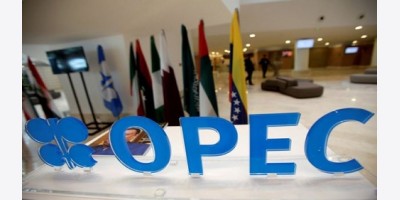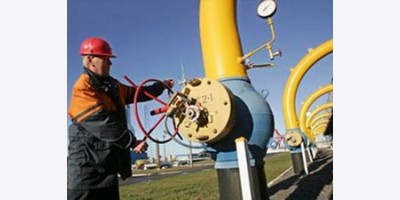Nigerian President Goodluck Jonathan suspended central bank Governor Lamido Sanusi in a surprise move that halted bond trading and sent the naira to a record low, after his accusations of missing oil revenue sparked a public outcry and criticism against the government.
Sanusi, 52, was suspended for alleged “financial recklessness and misconduct,” Jonathan’s spokesman Reuben Abati said in an e-mailed statement. He will be replaced by his deputy, Sarah Alade, as acting governor. Zenith Bank Plc Chief Executive Officer Godwin Emefiele was nominated by Jonathan to succeed Sanusi when his term ends in June, according to a letter the president sent to the Senate.
Appointed in 2009 in the midst of a debt crisis, Sanusi cleaned up a banking industry near collapse, kept interest rates at a record in the face of calls from businesses for lower borrowing costs, and brought inflation down below 10 percent. His suspension may undermine the independence of the bank, adding to investor concern that policy makers may loosen their mandate on price and exchange rate stability.
“This is a disruptive move, which indicates that the Central Bank of Nigeria has de facto lost much of its independence,” Samir Gadio, an emerging markets strategist at Standard Bank Group Ltd. in London, said in an e-mailed response to questions. “Clearly it is driven by political motives given Sanusi’s vocal criticism of oil revenue leakages and the opaque fiscal system in Nigeria.”
The naira weakened as much as 3.2 percent to 168.90 per dollar, the lowest since Bloomberg began compiling data in 1999. It recovered to trade at 165.05 against the dollar as of 5:47 p.m. in Lagos, the commercial capital. Nigeria’s benchmark equities gauge slid 1.5 percent and yields on the nation’s Eurobonds due July 2023 jumped 11 basis points to 6.32 percent, the highest since Sept. 11.
Tension between Sanusi and Jonathan intensified late last year when he wrote to the president alleging the state-owned Nigerian National Petroleum Corp. had retained almost $50 billion in revenue that was due to the government. On Feb. 4, he told a Senate finance committee that $20 billion was outstanding. The NNPC has denied the allegations.
Jonathan’s office said in its statement that under Sanusi’s watch the central bank had been “distracted” from its mandate and expects Alade to “conduct its affairs with greater professionalism, prudence and propriety.”
Sanusi said in a phone interview he won’t return to the bank even though he plans to challenge his suspension in court.
“In the interests of the institution we need to know from the courts of law if the president has the authority to suspend the governor,” he said. “If we don’t establish that, then no governor of the central bank will be able to stand up to politicians because they can always be suspended on any kind of trumped up charges.”
Jonathan’s nomination of Emefiele as the new governor may help to calm investors’ concerns, Ronak Gadhia, Africa equity research analyst at Exotix Partners LLP in London, said in a phone interview.
“It is a positive appointment,” Gadhia said. “Being part of one of the larger banks means that he understands the challenges.” While the timing of the announcement could have been better, “you’re removing a major uncertainty for the market.”
Jonathan also nominated Adebayo Adekola Adelabu, the chief financial officer of First Bank of Nigeria Ltd., as deputy central bank governor to replace Tunde Lemo, who is due to retire.
Finance Minister Ngozi Okonjo-Iweala also moved to reassure investors that “tight fiscal and monetary policies” that were put in place by Sanusi and her office will continue.
“I want to reassure investors that the strong stability that we brought into this economy will continue, and we’ll not deviate from that,” she said in an interview in Abuja.
Her comments were echoed by Alade, who said in a phone interview from Niger that the central bank is “committed to our mandate ofprice stability and minimizing volatility in the foreign-exchange market.”
Sanusi fired the chief executives of eight lenders within four months of taking office after an audit of banks at the time found evidence of mismanagement and reckless lending. During his tenure he also criticized lawmakers for spending on salaries, prompting calls from the National Assembly for an apology.
Sanusi said in an interview last month that his successor’s main challenge will be to maintain the independence of the central bank and any undermining of that may hurt the economy.
A letter Sanusi wrote to Jonathan calling for a probe into the NNPC’s finances was leaked to newspapers in December, fueling criticism against the president for failing to tackle corruption. Lagos-based ThisDay newspaper reported on Jan. 9 that Jonathan told Sanusi to resign over the letter.
Okonjo-Iweala said an independent forensic audit of the oil accounts will help to clear up allegations of the missing revenue.
Sanusi can only be removed from his post by a two-thirds vote in the Senate, according to central bank rules.
“It’s a very unusual development, there’s no precedent of it,”Bismarck Rewane, chief executive officer at risk advisory Financial Derivatives Co., said by phone from Lagos today. “It will heighten uncertainty.”
Source: Bloomberg























